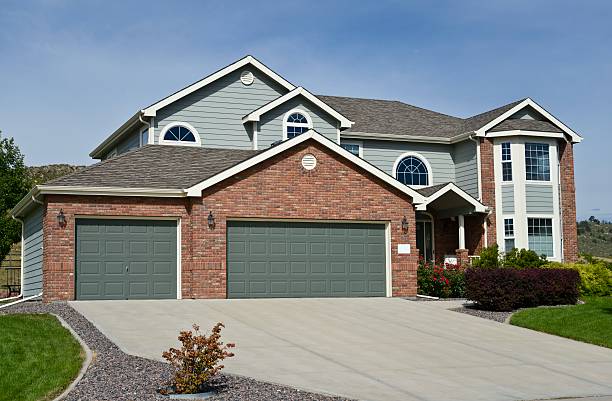A new roof is a big investment, so having a solid warranty in place is essential. But not all warranties are the same, and many homeowners don’t realize what’s covered until something goes wrong.
If you’re in Michigan and planning a new Roof Installation or just want to better understand your current warranty, it’s important to know the roof warranty coverage details so you’re prepared for any future issues.
The two main types of roof warranties and what they mean
Most roof warranties fall into two categories:
1. Manufacturer’s warranty
This type of warranty covers defects in roofing materials. If your shingles start to curl, crack, or fail prematurely due to a factory defect, the manufacturer may replace them.
- Typically lasts between 20–50 years
- Covers material defects but not installation errors
- May offer full or prorated coverage depending on the terms
2. Workmanship warranty
This warranty is provided by your roofing contractor and covers installation errors. Even high-quality materials won’t protect your home if the roof isn’t installed correctly.
- Coverage length varies but often ranges from 1 to 10 years
- Protects against poor installation, flashing issues, and leaks caused by workmanship errors
- Does not cover problems caused by weather, falling debris, or lack of maintenance
Both warranties are important, but understanding their limits will help you avoid costly surprises down the road.
What roof warranties usually cover
A good roof warranty will provide peace of mind by covering:
- Material defects – If shingles, underlayment, or other roofing materials fail due to manufacturing defects.
- Blow-off protection – Some warranties cover shingles that come loose in moderate winds, but only if they were installed according to the manufacturer’s guidelines.
- Installation errors (if under a workmanship warranty) – If flashing, vents, or shingles were installed incorrectly, leading to leaks or early wear.
Checking your warranty’s specific terms will tell you exactly what’s included.
What roof warranties typically do not cover
Many homeowners assume their warranty will cover any roof issue, but there are some common exclusions:
- Storm damage – High winds, hail, and falling tree branches are usually covered by homeowner’s insurance, not a roof warranty.
- Improper maintenance – If clogged gutters or moss buildup lead to roof damage, your warranty may be voided.
- Third-party damage – If another contractor or a satellite dish installation causes issues, your warranty may not cover repairs.
- Aging and normal wear – Warranties cover premature failure, not the natural aging of your roof over time.
Being aware of these exclusions will help you maintain your roof properly and avoid unexpected expenses.
How to make sure your roof warranty remains valid
A warranty is only useful if it stays in effect. Here’s how you can keep your coverage active:
- Hire a certified roofing contractor – Many manufacturers require professional installation by an approved contractor for the warranty to be valid.
- Schedule regular inspections – Having your roof checked once a year can help you spot small issues before they become major problems.
- Keep records of maintenance and repairs – If you ever need to file a claim, proof of regular maintenance can be crucial.
- Avoid unauthorized modifications – Adding skylights, solar panels, or satellite dishes without approval could void your warranty.
Taking these steps will help protect your investment and ensure your roof remains covered for as long as possible.
Is an extended roof warranty worth it?
Some manufacturers and contractors offer extended warranties for added protection. These may include:
- Longer material coverage – Extends the standard manufacturer’s warranty for more years.
- Workmanship guarantees – Covers labor and installation errors for a longer period.
- Full-system coverage – Includes flashing, underlayment, and other components beyond just shingles.
If you plan to stay in your home for a long time, an extended warranty may be a smart investment.
What to do if you need to file a warranty claim
If you experience a roofing issue that may be covered under warranty, follow these steps:
- Review your warranty – Understand what is covered and what documentation is needed.
- Take photos of the damage – Clear pictures will help support your claim.
- Contact your roofing contractor or manufacturer – Report the issue as soon as possible.
- Schedule a professional inspection – A roofer can assess the damage and determine if it qualifies for warranty coverage.
- Keep all receipts and records – Proof of installation and maintenance will strengthen your claim.
A smooth claims process starts with understanding your roof warranty coverage details in advance.
Get the right roof warranty with a professional installation
A good roof warranty can save you from unexpected repair costs, but only if you choose a reliable roofing company to install it correctly. At Melvin Belk Roofing, we provide expert Roof Installation services and ensure you get the best warranty options for long-term protection. Contact us today to learn more about your warranty choices and keep your home covered.
Frequently Asked Questions About Roof Warranty Coverage
1. How long does a typical roof warranty last?
Manufacturer warranties often last 20–50 years for materials, while workmanship warranties from contractors typically range from 1 to 10 years.
2. What does a manufacturer’s roof warranty cover?
It covers defects in roofing materials, such as shingles that fail prematurely due to a production flaw.
3. Will my roof warranty cover storm damage?
No, storm damage is typically covered by homeowner’s insurance, not your roof warranty.
4. Can I transfer my roof warranty if I sell my house?
Some warranties are transferable to a new homeowner, but this varies by manufacturer and contractor.
5. What voids a roof warranty?
Improper maintenance, unauthorized modifications, poor installation, and using unapproved contractors can void a warranty.
6. Is an extended roof warranty worth the investment?
If you plan to stay in your home long-term, an extended warranty can provide extra protection against material defects and workmanship issues.










